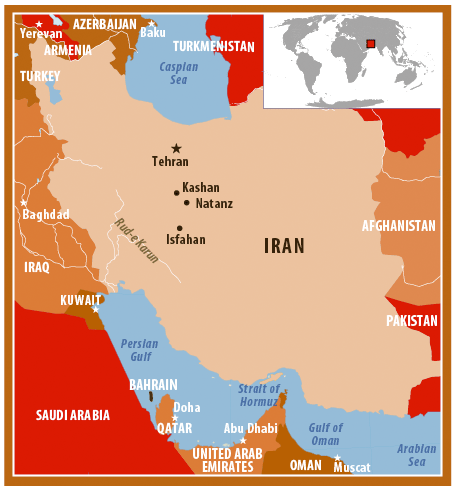“People can tolerate hardship, people can tolerate dictatorship but when they reach a point that they feel humiliated that’s when they can force change.”
This week I attended a lecture by a great Iranian whose name I will not mention for security reasons. The discussion was about Iran and the green movement. If you don’t know already, in June President Mahmoud Ahmadinejad (call him ‘ahmad in a jacket’ if you want to get his name right quickly like me) won what Ugandans would call another Kisanja (term) during the disputed presidential elections. Before the elections people had been generally free to canvass for votes and many Iranians believed even if he didn’t go, their vote for reform would be recognised. Ahmadinejad claimed a two-thirds majority and the protests against the election followed where many people were arrested some killed. Currently over 500 Iranians from all walks of life are still locked up in jails for taking part in the protest but this has not crashed the movement for change.

So from this lecture I got you what I thought was important quotes and highlights of the Iranian green movement.
First, it has been non-violent. It has no structured leadership for this would make it easy for the dictatorship to target the leaders and therefore somehow significantly crash the movement.
It has been embraced by Iranians from all walks of life. “It is not a student uprising neither is it about workers.”
Only 20 percent of the population are in favour of the current Islamic establishment but you can’t mistaken this movement to be about religion.
It has taken advantage of the new media age to use outlets like twitter, facebook and others to make their voices heard by the rest of the world.
The professor indicated that he was glad this movement is not happening overnight.
“The movement is now less visible than it was in the first two weeks after the elections. I am happy the reform is going on gradually, we don’t need it to be immediate because that will be violent thus taking us 30 years back.”
“It’s a protest that is affecting the core of government. The election was not the only issue. For the last 30 years nobody questioned the legitimacy of government but we see it now.”
On leadership: We know what we don’t want but we don’t know what we want. All factions are together but if you asked what kind of political system they want, there will be a difference, that’s why it’s good the movement is gradual. It gives a chance to get in touch with ordinary people and build awareness.
To foreigners: “the biggest help you can give us is do nothing. The US has been giving money for democracy promotion but Iran has money, that’s not what we want.”
His remarks on the impact of a non-violent all encampassing movement are very true becuase for places like uganda where a rebel leader (current president Museveni) took over power by force promising a fundamental change, they have largely returned to the same old corruption and political manupilation of the citizenry.
I was moved to write about this lectured because of the opening quote. Many Ugandans long for reform but there’s the inability for people to come together to demand for this. Thiss left thinking may be we haven’t yet felt the humiliation. And if that’s so when we will feel it?
